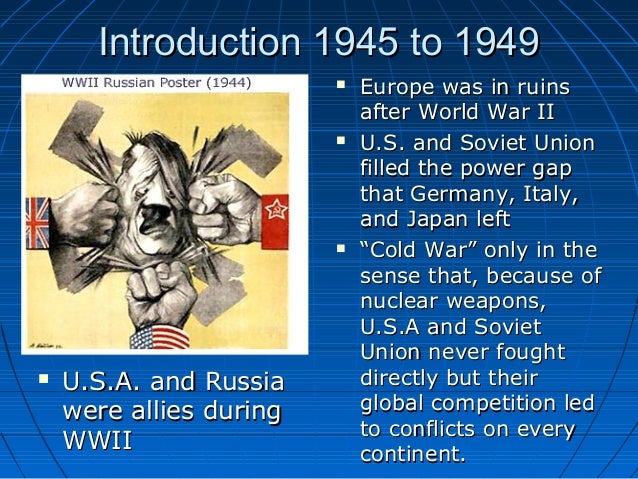
The End of World War II
The Cold War started because of the end of World War II. The Allies, consisting of the United States, the Soviet Union, and Great Britain, defeated the Axis powers of Germany, Japan, and Italy in 1945. The Allies were able to win the war, but it came at a great cost. Millions of people died, and the world was forever changed.
The Yalta Conference
One of the main reasons the Cold War started was because of the Yalta Conference. This conference was held in February 1945, just before the end of World War II. The conference was attended by Franklin D. Roosevelt, Winston Churchill, and Joseph Stalin. The leaders discussed the post-war world and how it would be divided up. The Soviet Union wanted to have control over Eastern Europe, but the United States and Great Britain did not want that to happen.
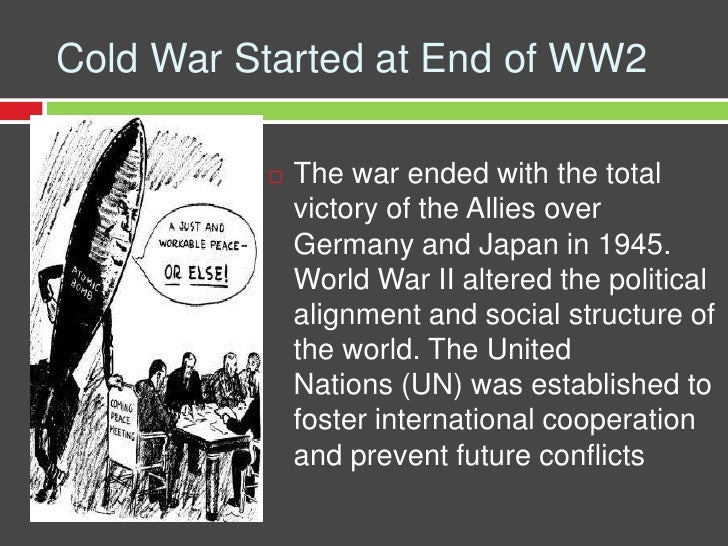
The Soviet Union Occupies Eastern Europe
After World War II ended, the Soviet Union occupied Eastern Europe. This caused tension between the United States and the Soviet Union. The United States believed that the Soviet Union was trying to spread communism throughout the world. The Soviet Union believed that the United States was trying to spread capitalism throughout the world. This led to the beginning of the Cold War.

The Truman Doctrine
In 1947, President Harry S. Truman issued the Truman Doctrine. This doctrine stated that the United States would provide military and economic aid to any country that was threatened by communism. The Truman Doctrine was the beginning of the United States' policy of containment. The United States wanted to contain communism and prevent it from spreading throughout the world.
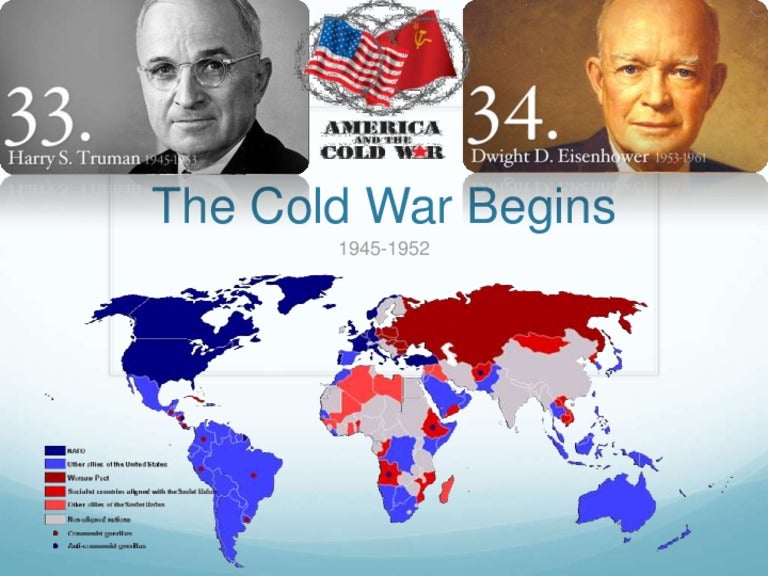
The Marshall Plan
In 1948, the United States implemented the Marshall Plan. The Marshall Plan was a program that provided economic aid to Western Europe. The United States wanted to help rebuild Western Europe after World War II and prevent the spread of communism. The Soviet Union saw the Marshall Plan as a threat to its power and influence in Eastern Europe.
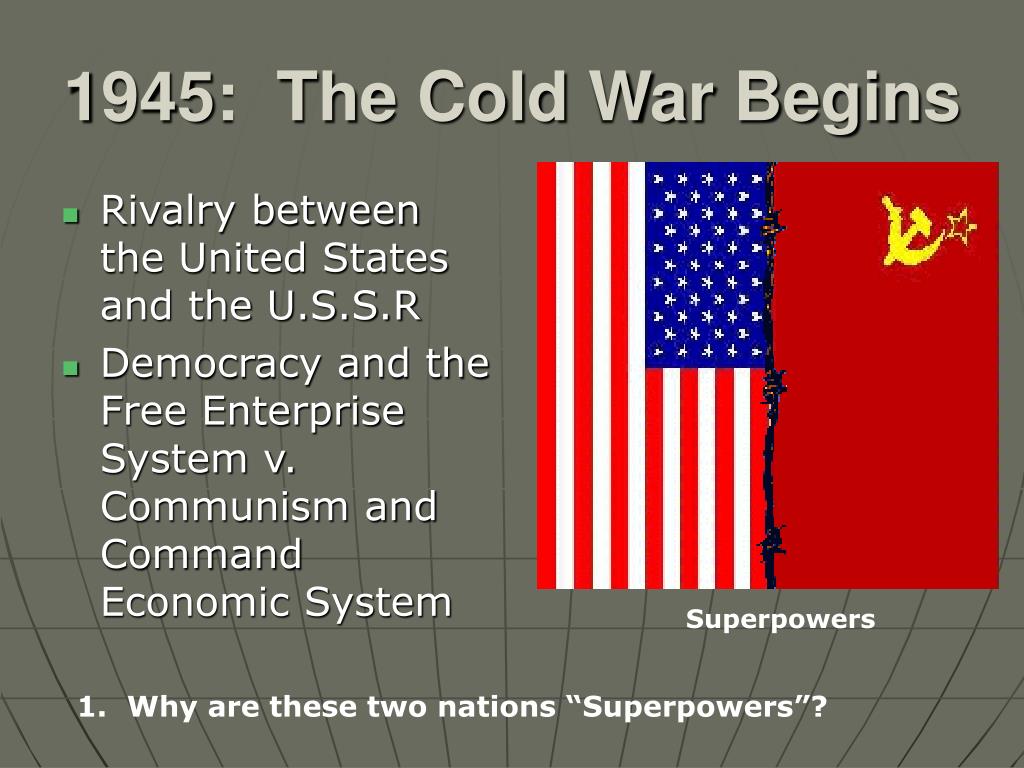
The Berlin Blockade
In 1948, the Soviet Union blockaded West Berlin. The United States responded by airlifting supplies to West Berlin for almost a year. The Berlin Blockade was one of the first major crises of the Cold War. It showed that the United States was willing to stand up to the Soviet Union and defend its allies.
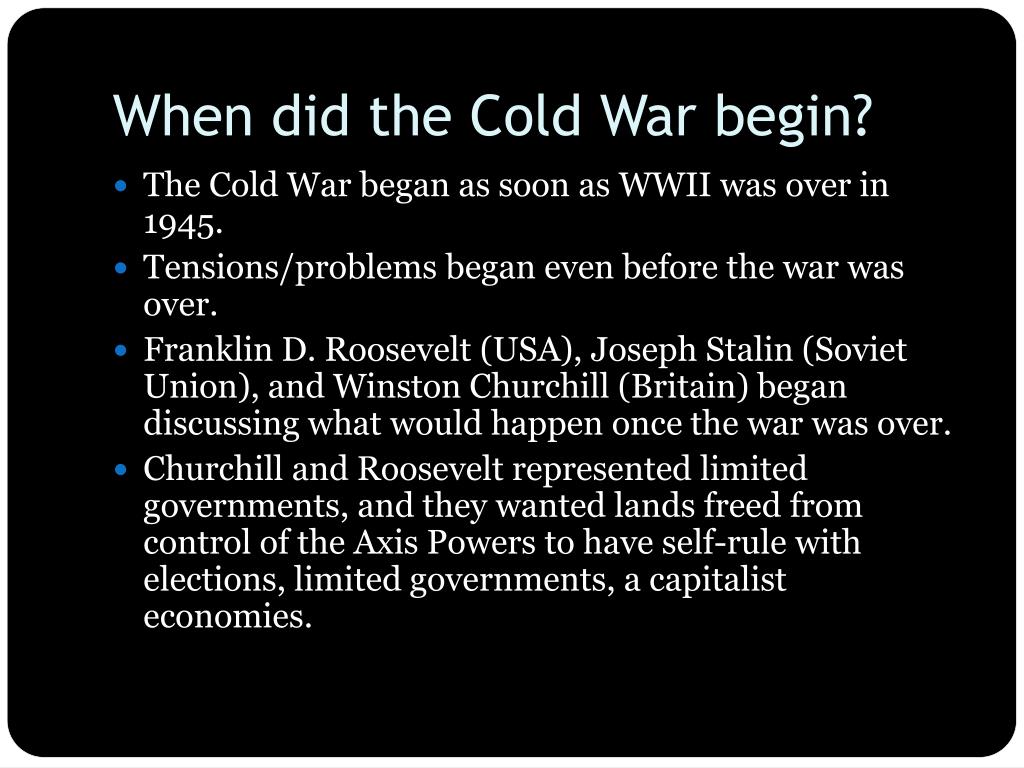
NATO is Formed
In 1949, the North Atlantic Treaty Organization (NATO) was formed. NATO was a military alliance between the United States, Canada, and Western European countries. The purpose of NATO was to defend against Soviet aggression. The formation of NATO was a direct response to the Soviet Union's aggression in Eastern Europe.
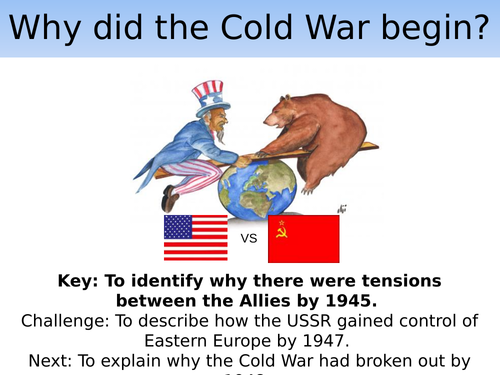
The Soviet Union Develops Nuclear Weapons
In 1949, the Soviet Union developed its first nuclear weapon. This was a major development in the Cold War. The United States had developed its own nuclear weapon in 1945, but the Soviet Union's development meant that there was now a nuclear arms race between the two superpowers.
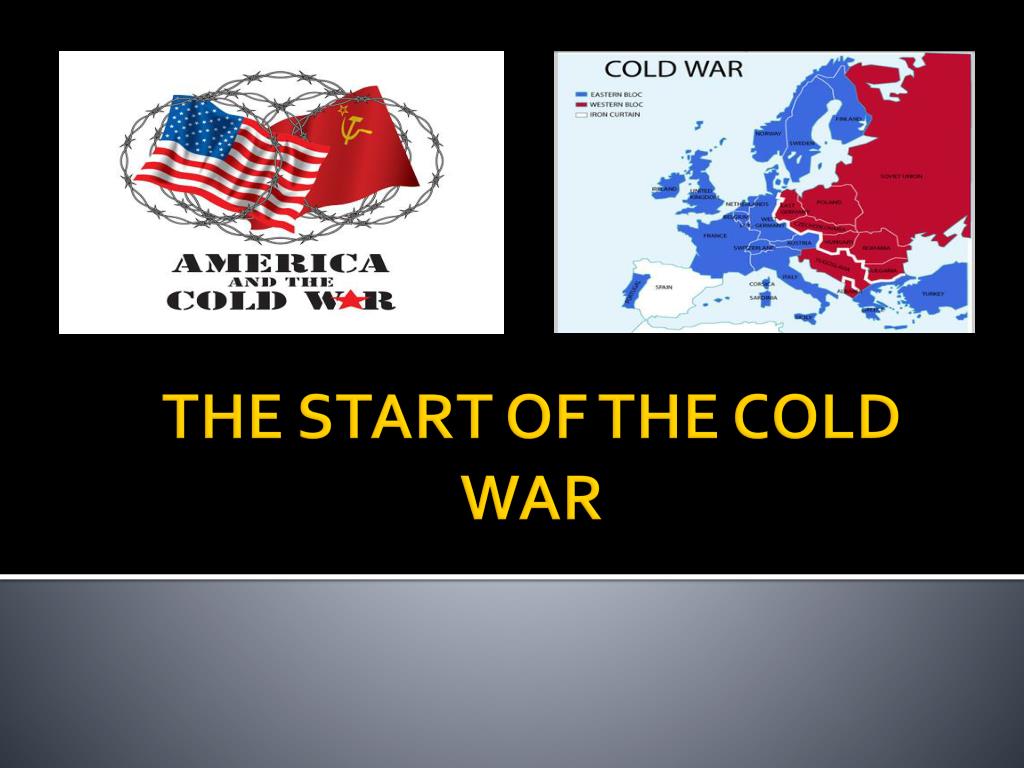
The Korean War
In 1950, the Korean War started. The war was fought between North Korea, which was supported by the Soviet Union and China, and South Korea, which was supported by the United States and its allies. The Korean War was one of the first major conflicts of the Cold War. It showed that the United States was willing to fight to defend democracy and capitalism.

The Space Race
In the 1950s and 1960s, the United States and the Soviet Union competed in the Space Race. The Space Race was a competition to see who could get to space first. The United States and the Soviet Union both wanted to show that they were the more powerful and advanced country. The Space Race was a symbol of the Cold War.
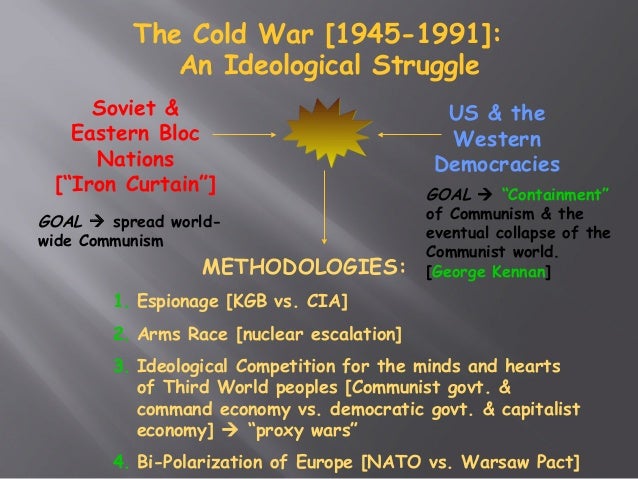
The Cuban Missile Crisis
In 1962, the Cuban Missile Crisis occurred. The Soviet Union had placed nuclear missiles in Cuba, which was just 90 miles from the United States. The United States responded by blockading Cuba and demanding that the Soviet Union remove the missiles. The Cuban Missile Crisis was one of the closest moments the world ever came to nuclear war.
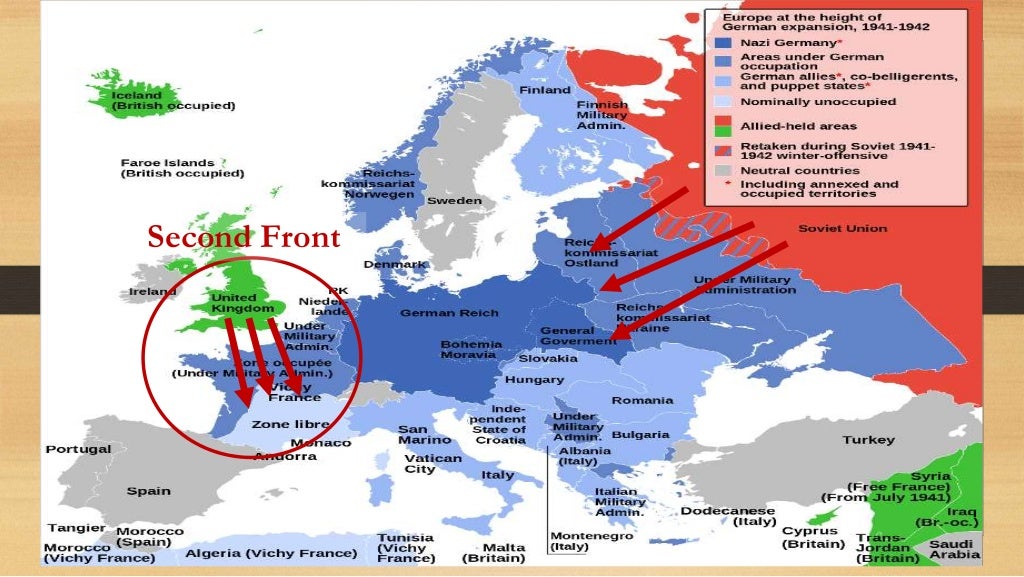
The Vietnam War
In the 1960s and 1970s, the United States fought in the Vietnam War. The war was fought between North Vietnam, which was supported by the Soviet Union and China, and South Vietnam, which was supported by the United States and its allies. The Vietnam War was a very controversial war, and it led to protests and demonstrations throughout the United States.
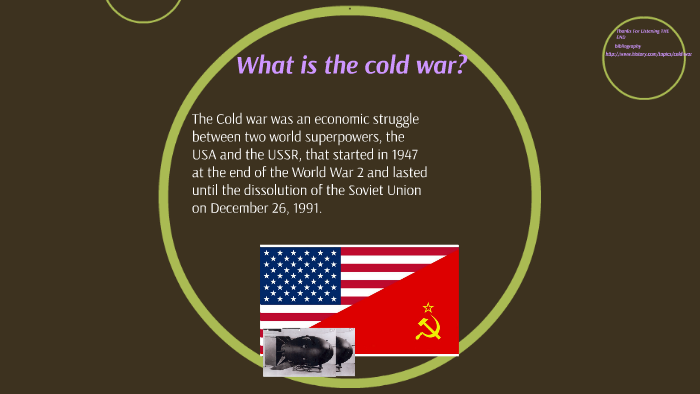
Détente
In the 1970s, the United States and the Soviet Union began a policy of détente. Détente was a period of relaxation of tensions between the two superpowers. The United States and the Soviet Union signed several arms control agreements during this time. However, the policy of détente was short-lived.

The Fall of the Soviet Union
In 1991, the Soviet Union collapsed. The collapse of the Soviet Union marked the end of the Cold War. The United States emerged as the world's sole superpower.
Conclusion
The Cold War started because of the end of World War II and the tension between the United States and the Soviet Union. The Cold War was characterized by competition between the two superpowers, a nuclear arms race, and several major crises. The Cold War ended with the collapse of the Soviet Union in 1991.